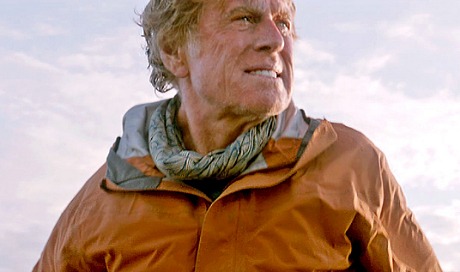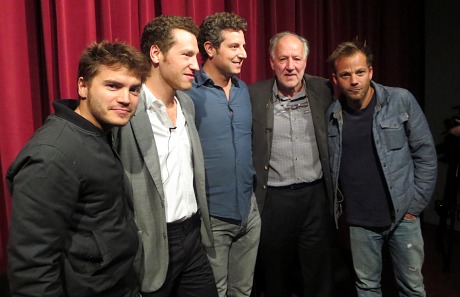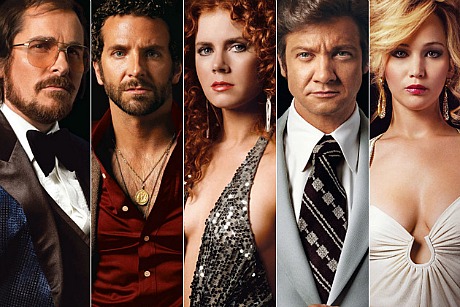The All Is Lost fan club seems to have a few more older than younger members. David Thomson‘s recent rave and Maureen Dowd‘s N.Y. Times profile of Robert Redford (in the 10.13 Sunday print edition) suggest this. Several have noted that All Is Lost is a metaphor about how nature has a way of making things more and more difficult for long-of-tooth guys, and then surrounding and taking them down. Salman Rushdie told me at the Telluride Film Festival that it wouldn’t be as effective if Redford was in his 40s — the fact that he was born in 1937 makes it all the more poignant. My son Jett (who attended the All Is Lost Manhattan premiere last night) says he liked it “but I like Gravity better.” (To which I said, “You can’t tell me you prefer Sandra Bullock‘s performance to Redford’s…you can’t tell me that.”) And let’s not forget Guy Lodge‘s snide little ageist remark, posted on this site, when he asked if I like All Is Lost so much because I’m in the older camp. Yeah, that’s it, Guy.




